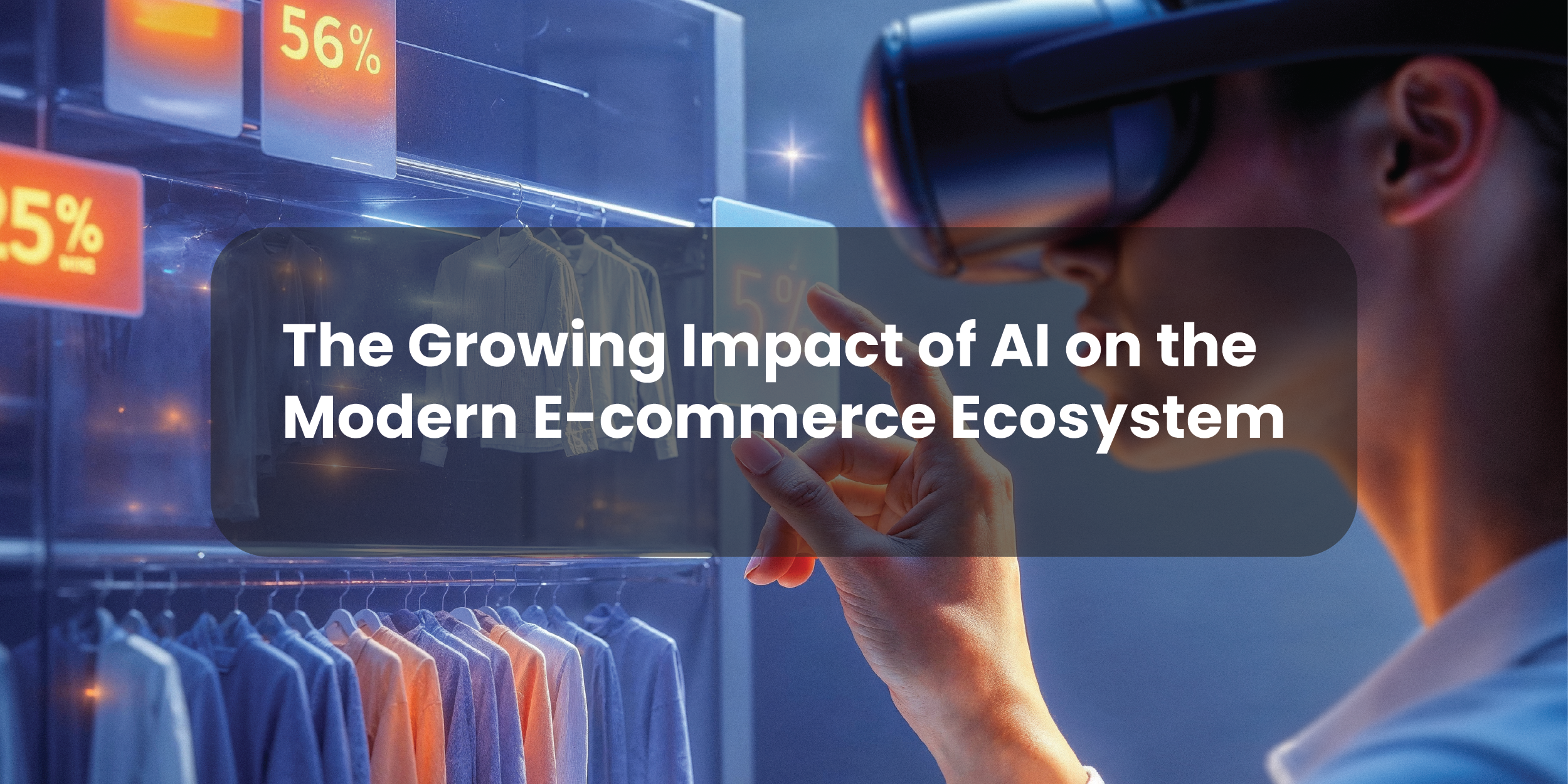Artificial Intelligence (AI) is no longer a futuristic concept but a present-day reality transforming the e-commerce industry. From personalized shopping experiences to streamlined operations, AI is reshaping how businesses and consumers interact in the digital marketplace.
Market Growth and Economic Impact
The global AI in e-commerce market was valued at $7.25 billion in 2024 and is projected to reach $64.03 billion by 2034, growing at a compound annual growth rate (CAGR) of 24.34%. This rapid expansion underscores the increasing reliance on AI technologies to enhance business operations and customer experiences.
Personalized Shopping Experiences
AI enables e-commerce platforms to deliver personalized shopping experiences by analyzing customer data and behavior. Personalized recommendations can increase conversion rates and average order values, as customers are more likely to purchase items tailored to their preferences.
Key Benefits:
-
Increased Conversion Rates: Personalized experiences lead to higher conversion rates as customers find products that match their interests. For example, Amazon’s recommendation engine drives 35% of its revenue through personalized suggestions.
-
Enhanced Customer Satisfaction: Tailored recommendations improve customer satisfaction by making shopping more relevant and enjoyable.
Advanced Search and Discovery
AI-powered search functionalities, such as natural language processing (NLP) and visual search, enhance product discovery. Shoppers can find products using voice commands or images, making the search process more intuitive and efficient.
Key Features:
-
Voice Search: Allows customers to search for products using voice commands, providing a hands-free shopping experience. Google reports that 27% of global online users are using voice assistants regularly for shopping.
-
Visual Search: Enables users to upload images to find similar products, streamlining the discovery process.
AI Chatbots and Virtual Assistants
AI chatbots provide real-time customer support, handling inquiries, processing orders, and offering personalized assistance. These virtual assistants operate 24/7, improving customer service efficiency and satisfaction.
Key Advantages:
-
24/7 Availability: AI chatbots are available around the clock, ensuring customers receive assistance anytime. According to Business Insider, the chatbot market is expected to reach $9.4 billion by 2024.
-
Cost Efficiency: Automating customer support reduces the need for a large customer service team, lowering operational costs.
Dynamic Pricing and Inventory Management
AI algorithms analyze market trends, competitor pricing, and demand fluctuations to optimize pricing strategies. Additionally, AI assists in inventory management by predicting demand and preventing stockouts or overstocking.
Key Benefits:
-
Optimized Pricing: AI-driven dynamic pricing ensures competitive pricing while maximizing profit margins. Retailers using AI pricing tools have seen revenue increases by up to 25% (McKinsey report).
-
Efficient Inventory Management: Predictive analytics help maintain optimal stock levels, reducing storage costs and lost sales.
Fraud Detection and Security
AI enhances security by detecting fraudulent activities through pattern recognition and anomaly detection. This proactive approach helps prevent fraud and protects both businesses and customers.
Key Features:
-
Anomaly Detection: AI identifies unusual transaction patterns, flagging potential fraud. The Association of Certified Fraud Examiners highlights AI as a key tool in modern fraud detection.
-
Real-Time Monitoring: Continuous monitoring allows immediate response to suspicious activities, minimizing losses.
Marketing Automation and Customer Segmentation
AI automates marketing campaigns by segmenting customers based on behavior and preferences. This targeted approach improves the effectiveness of marketing efforts and increases return on investment (ROI).
Key Advantages:
-
Targeted Campaigns: AI enables personalized marketing strategies, reaching the right audience with relevant content. According to Salesforce, 72% of consumers expect personalized marketing.
-
Improved ROI: Automated campaigns reduce manual efforts and increase marketing effectiveness.
Post-Purchase Experience and Customer Retention
AI continues to engage customers after purchase by providing personalized follow-ups, recommending related products, and offering loyalty rewards. This ongoing interaction fosters customer loyalty and encourages repeat business.
Key Strategies:
-
Personalized Recommendations: Suggesting related products based on previous purchases enhances the shopping experience.
-
Loyalty Programs: AI-driven loyalty programs reward customers for repeat purchases, increasing retention rates.

